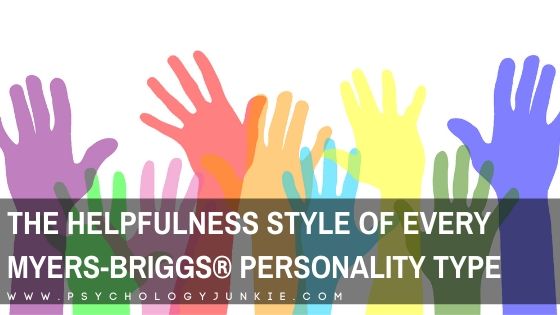What is Extraverted Feeling?
Have you ever been reading type-related articles online and come across the term “Extraverted Feeling”? Perhaps you’ve wondered what this means. Maybe you’ve even seen the term “Fe” and scratched your head in confusion. Extraverted Feeling is one of the eight cognitive functions or processes that we use when we think, decide, and form judgments.
Table of contents
- What Are Cognitive Functions?
- What Is Extraverted Feeling (Fe)?
- What Extraverted Feeling Is Not
- Extraverted Feeling at Its Best and Worst:
- Extraverted Feeling vs. Introverted Feeling
- More Examples of Extraverted Feeling (Fe)
- A Look at Extraverted Feeling Types:
- Extraverted Feeling Doesn’t Work Alone
- Summing Up What Extraverted Feeling Does:
- What Are Your Thoughts?
Estimated reading time: 13 minutes

What Are Cognitive Functions?
Cognitive functions are core mental processes that allow us to take in information and make decisions. Extraverted Feeling is a judging function; this means that it’s something you use when you have to make a decision. Extraverted Feeling is primarily favored by Feeling-Judging personality types: ENFJs, ESFJs, INFJs, and ISFJs.
What Is Extraverted Feeling (Fe)?
Extraverted Feeling focuses on shared values, the greater good, and emotional dynamics. Extraverted Feeling types (FJ personalities) tend to believe that individual wants and desires should come second to the overall harmony or well-being of the group at large. They may also try to influence group values so that their ethics are shared by many individuals. They express their values in the world outside themselves and respond to the emotional interplay of individuals outside themselves.
What Extraverted Feeling Is Not
Extraverted Feeling isn’t focused on harmony at all costs, and it doesn’t want to bully people into conformity (unless it’s at an unhealthy, immature state). While Feeling-Judging types prefer to be in harmonious environments, and often work to create feelings of harmony, they are willing to go against the grain for what they believe in.
Extraverted feeling is primarily focused on externalizing values into the world outside one’s self. It is also focused on understanding the emotions and values of the people outside one’s self.
As a minor example, an Extraverted Feeling type might not say where they want to eat for dinner until they’ve heard where everyone else in their group wants to eat. To them, the overall harmony of the people in their group matters more than their own individual desire to eat at a specific restaurant. If 6 people in the group want Mexican food, and two people want Italian food, then the FJ is likely to say “Let’s get Mexican food now, then go to that really good Italian place for dessert.” In their minds, doing this means everyone’s wishes are taken into account.
For the FJ, a best-case scenario is one where everyone gets their needs met and nobody is left out or unheard. Consensus is key.
As an alternate (and more contentious) example, a Feeling-Judging type might be in a group of people who disagree with them about a particular value or ethic. We could imagine that they are pro-life (as an example) and they are surrounded by pro-choice individuals. They may argue the case for their beliefs very persuasively and try to convince other people of the “rightness” of their belief. Obviously, the situation could be reversed. An FJ who is pro-choice could be arguing for their “rightness” against a group of pro-lifers. As an FJ type, they’d try to argue with empathy, understanding, and appeal to shared human values that each person would agree with (value of human life, value of freedom, respect for women, respect for babies, etc,.) They would likely use the word “we” a lot to show their connection with even the people they disagree with.
Extraverted Feeling types have firm ideas of what is “right” or “wrong” and will typically try to share their values with others. However, because they are also concerned with appealing to others’ shared values, they will typically frame their argument in an empathetic, relatable, engaging way that connects them to others and emphasizes what both communicating parties can see eye-to-eye on.
Harmony is hoped for in all occasions, but FJs won’t sacrifice their deeply-held values on the altar of harmony.
Extraverted Feeling at Its Best and Worst:
Extraverted Feeling is a helpful tool that allows for unity and understanding between people. Fe at its best helps to bring people together, bridge difference between individuals, and communicate values in a persuasive, affecting way. As an example, Martin Luther King Jr. was an ENFJ who used Extraverted Feeling to help spread his civil rights message. He was able to tap into the human experience and shared moral values to plead with humanity to be better, kinder, and fairer.
“Life’s most persistent and urgent question is, ‘What are you doing for others?” – Martin Luther King Jr.
Extraverted Feeling at its worst can be used as a manipulative tool to shame or guilt others into doing something that the FJ personality believes will better the group as a whole. Unhealthy FJ types have little patience for anyone who is rocking the boat to stick up for their own values or desires. “It doesn’t matter if you want to go to this birthday or not” they might be say, “It will look bad for the whole family if you don’t show up.” They may feel righteously above others who are less keen on investing in group values. Or they may steamroll over themselves in an effort to please everyone else. Codependency, pushiness, and neediness are symptoms of unhealthy Extraverted Feeling.
Extraverted Feeling vs. Introverted Feeling
Extraverted Feeling is one of two Feeling functions. The other Feeling function is called Introverted Feeling (Fi). Fi-users are focused on aligning themselves with their individual values, feelings, and desires and creating internal harmony. To do this, they track their own values, tastes, and emotions and internally analyze them. They ask themselves, “What matters to me?”
Fi-types don’t like to impose their will on other people but instead choose to either ignore or go against values they disagree with. To them, understanding themselves is the important thing, even if it upsets the “greater good.”
Extraverted Feeling-users are focused on getting along with others and promoting shared value systems. As a result, FJs tend to be very people oriented. Even introverted FJs (INFJs and ISFJs) can seem warm, bubbly, and engaging around other people. It’s crucial to them to put people at ease and create an overall atmosphere of warmth. While they have individual values and desires as well (we all do. It’s part of being human) they may soften or raise the volume on them based on how it will impact the well-being of the people around them or how important the value is.
An introverted feeling type (FP personality) is more likely to strive for authenticity over warmth. Sometimes, being authentic will mean being warm, but sometimes it will mean being more distant. While FJ types are likely to have easily recognizable emotions that flutter over the face in real-time, FPs have emotions that are deeper beneath the surface and less apt to be visible in the present moment.
Jungian analyst Daryl Sharp said of Introverted Feeling, “Since the introversion of this type inhibits outer expression, such persons are seldom outspoken about what they feel. But their subjective value system, notes von Franz, generally exerts “a positive secret influence on their surroundings.””
For the introverted feeling type, there is little desire to control or direct the emotional atmosphere. FPs, like most people, would rather be in harmonious environments than conflict-ridden ones. But they don’t feel it’s their responsibility to direct everyone else’s moods or try to manage them. They’re more likely to let people feel what they feel and assume that those individuals are taking responsibility for their own feelings and wouldn’t like to be intruded upon. To the Introverted Feeling type, Extraverted Feeling can seem intrusive. To the Extraverted Feeling type, the Introverted Feeling type may seem distant or hard to read. Both care about values and ethics, but one directs that energy inward and one directs it outwards.
Because FPs and FJs are both value and ethics oriented individuals, they will both, at times, speak out about what they believe is right or wrong. But the manner in which they do it will vary.
An FJ type is likely to appeal to shared values. “This is wrong because we as humans all believe in kindness, fairness, and equality. You and I both care about these things. Let’s work together to understand each other and create a kinder world.”
If you notice, FJs are saying things like, “we,” “you and I” “together” and then referencing things that most humans agree with: kindness, fairness, equality.
An FP type is likely to appeal to individual values. “I believe this is wrong because it takes away someone’s rights and autonomy. I and others have a right to our own individual expression and to be true to ourselves. It’s wrong to bully anyone into conformity or to force someone to pretend to be something they’re not.”
The FP is fighting for what’s right without feeling the need to relate themselves to the “other” and they are using words like “individual,” “I”, “autonomy.” Both the FJ and the FP could be arguing about the same exact thing, but they will often use a different strategy (and different words) to fight for it.
More Examples of Extraverted Feeling (Fe)
Example 1 – Making decisions
When FJs make decisions, they think about how others will feel, and whether or not their decision will have a positive negative impact on the people they care about. Because they’re so concerned about this, it may make it difficult for them to decide when they get little to no feedback from others.
Example 2 – Dealing with people
Extraverted feelers (Fe-users) are quite skilled at knowing how their words and actions will make people feel. Because of this, they are often people-pleasers and may struggle with saying “no”, even when they know that doing so would be helpful for them in order to take better care of themselves.
Example 3 – Getting things done
People with Extraverted Feeling care about making a good impression. If they have an obligation to anyone, they’re likely to take it seriously. They usually care about getting good grades, upholding commitments, and following through on their responsibilities. To let someone down is anathema to the FJ type.
Example 4 – Fighting for a Cause
Extraverted Feelers are very good at working toward a cause and pushing for social change. They feel a strong desire to help people and wish to improve the world. When they see something happening in the outside world that conflicts with their values, they feel an urge to speak up. However, what FJs will value is different from person to person.
As an example, one FJ might value freedom of speech and fight against cancel culture while another FJ detests hate speech or certain opinions and therefore becomes an enforcer of cancel culture. The values FJs align themselves with will vary from person to person.
A Look at Extraverted Feeling Types:
ESFJ – Extraverted Feeling with Introverted Sensing
ESFJs have a natural ability to read the mood of their environment, which can make them great at coordinating parties or leading meetings. They also have an uncanny knack for remembering when people need help – they’re often the first to notice when someone is in distress and do something practical to help! These individuals are usually down-to-earth, detail-oriented, and practical. They believe in following the rules and may find it difficult to consider new ways of doing things that will require them to stray from their usual methods.
Read This Next: 24 Signs That You’re an ESFJ, the Defender Personality Type
ENFJ – Extraverted Feeling with Introverted Intuition
ENFJs are charismatic personalities who enjoy inspiring people with visions of the future. They have an insightful approach to life and enjoy urging others on towards a future that they have imagined. Connecting on an emotional level with others and “reading” them is something of a hobby to them. These types appreciate metaphor and enjoy reading-between-the-lines. Analyzing the big questions of life (“Why are we here?” “What is love?” Why do we die?”) gives them the utmost pleasure.
Read This Next: 24 Signs That You’re an ENFJ, the Mentor Personality Type
ISFJ – Introverted Sensing with Extraverted Feeling
ISFJs are gentle and thoughtful individuals, who quietly want to improve their communities. They highly value loyalty and tradition and generally follow rules and guidelines. They can be perfectionists and may try to please others by doing more than what is expected. These types enjoy quiet, peaceful lives and are skilled at bringing warmth, hands-on care, and tenderness to people who need it. This is why you’ll often find them in careers as teachers or health care workers! They balance an empathetic nature with a grounded, matter-of-fact demeanor.
Read This Next: What It Means to be an ISFJ Personality Type
INFJ – Introverted Intuition with Extraverted Feeling
INFJs are thoughtful and visionary, trying to improve the world and bring their dreams to fruition. Sensitive to the feelings of others, they try to be gentle and generally avoid conflict. They have a knack for seeing meaning behind things and often withdraw from the world to ponder about bigger questions. They are adept at understanding others’ emotions and work hard to be understanding towards them. These types, like ENFJs, appreciate symbolism and crave a meaningful life over a comfortable one.
Read This Next: What It Means to be an INFJ Personality Type
Extraverted Feeling Doesn’t Work Alone
Types with Extraverted Feeling also prioritize another mental process called Introverted Thinking (Ti). Introverted thinking causes Extraverted Feeling types to want to understand how things and people work. They have a difficult time justifying decisions that lack a logical foundation or making assessments of people when data is missing or inconsistent. This is how the Feeling and Thinking sides of their personality work together.
Just like an auto mechanic wants to know all the inner workings of an engine, an FJ type wants to know all the inner workings of people.
As FJs talk to people, they hope to draw out information that will help them form a mental blueprint of how that person works. For example, they may try to learn about a person’s childhood, their relationships, or their various interests in order to form a clear and detailed understanding of why the person operates the way they do and how to communicate with them better. FJ types (unless unhealthy) are unlikely to form rapid judgments about people until they have a storehouse of information to draw from. Over time, they learn how different bits of data influence people. Thus they become good at “reading” how people will react, feel, and cope with many diverse situations.
Accuracy of information about people is essential to FJs. They can never have too much information about a person, because each bit of information helps them to form a mental library about who someone is, why they are the way they are, and what to expect from them. Reading biographies, memoirs, or learning about psychology or mental health can pique the interest of many FJs who enjoy discovering more about how and why people do what they do.
The natural curiosity that Extraverted Feeling types have about people can make them seem nosy or overly-curious to more private types. Many FJ children find themselves constantly asking people questions about themselves. “What’s your favorite movie?” “What are your favorite songs?” “Why do people do that?” “Can you tell me why you think that’s wrong?” “How are you feeling right now?” Understanding how people work is of the utmost interest to these personality types.
Summing Up What Extraverted Feeling Does:
- Communicates shared values in order to influence and/or connect with others
- Evaluates and responds to the emotions of other individuals
- Organizes the external world in order to create a certain mood or sense of morale
- Honors good manners, responsibilities, and expectations
- Seeks to understand people better
- Thinks through decisions out loud to determine how people will be emotionally impacted
- Navigates their own feelings through verbal or external exploration (venting, journaling, hashing out feelings)
- Wants to get other peoples’ needs met
- Notices patterns in human behavior
- Tries to influence others towards “right” behavior
What Are Your Thoughts?
Did you enjoy this article? Do you have any more insights or stories to share to help other readers understand Extraverted Feeling? Let us know in the comments!
Find out more about your personality type in our eBooks, Discovering You: Unlocking the Power of Personality Type, The INFJ – Understanding the Mystic, The INTJ – Understanding the Strategist, and The INFP – Understanding the Dreamer. You can also connect with me via Facebook, Instagram, or Twitter!
Other Articles You Might Enjoy:
6 Major Misconceptions About Feeling Types
How to Make Sense of Your Emotions, Based On Your Personality Type
The Loneliness of Each Myers-Briggs®Personality Type













Extraverted Feeling is one of the six personality traits. It is a type of feeling that is focused on the external world. People with this personality trait are often drawn to things that make them feel good, like being around people or experiencing new
Wonderful article. Thank you